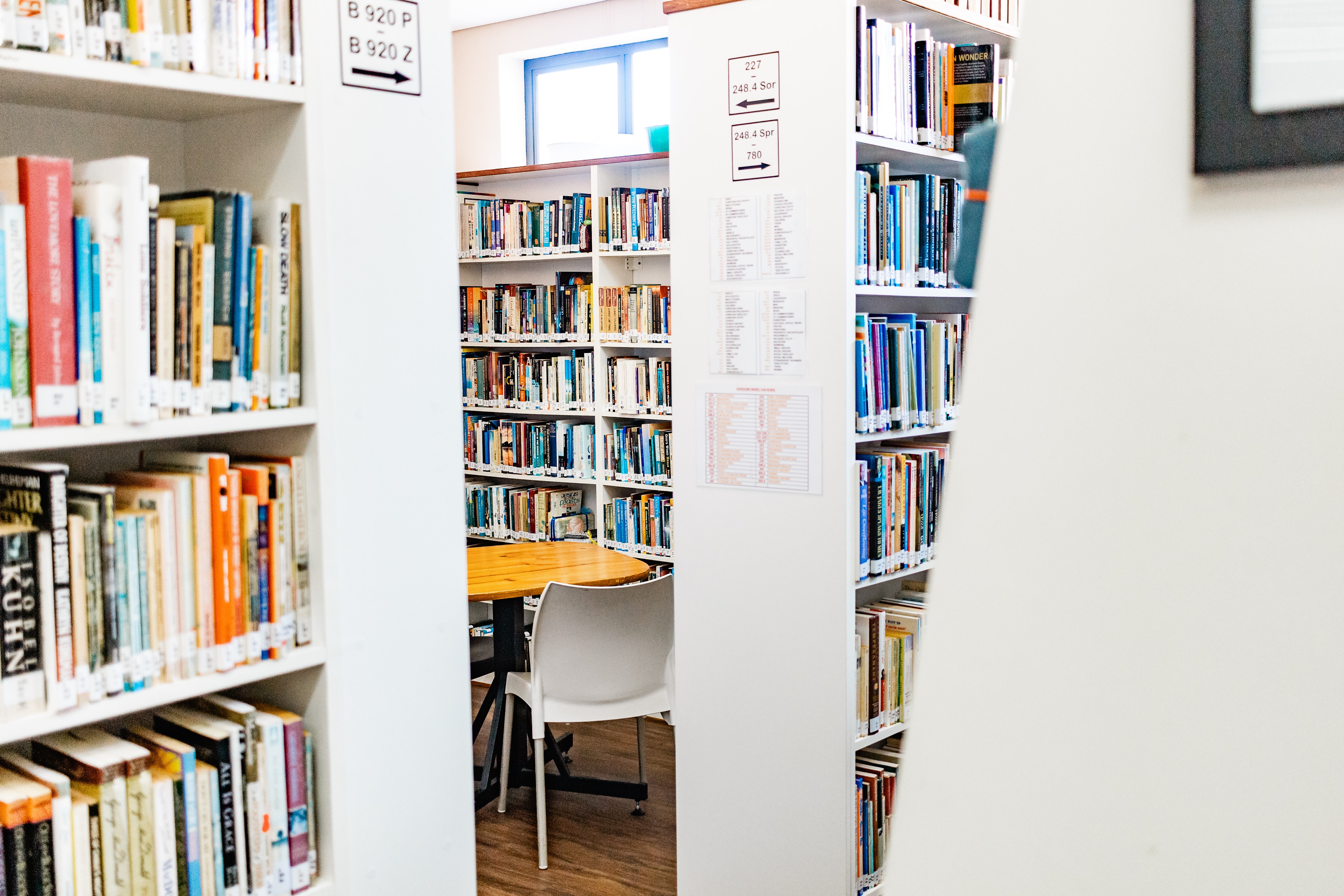Have you always wanted to know how to learn a new language, but don't even know where to start? The very idea of learning a language can be overwhelming, especially for those without previous language learning experience. With the right knowledge, expectations, motivation, and dedication, however, you can learn any language you set your mind to.
The following 15 tips and tricks for language learning will help you to get started!
1. Choose Your Language Wisely

There are a few things to keep in mind when choosing which language you want to learn:
- Why you want to learn the language.
Your personal motivation is crucial for your language learning success. It's highly recommended to study a language that you are motivated to learn, whether it be for personal or professional reasons.
- Where that language is spoken.
This can help you figure out your best strategy to be able to practice the language with native speakers as much as possible and can determine how practical the language is in your life.
- How knowing the language can improve your life.
Once again, the more a language can help to improve your life, the more motivated you will be to learn it. The more motivated you are to learn it, the easier, more fun, and faster it will be to learn the language. Choose a language that will bring you fulfillment.
- Know what resources are available to you.
Some languages are easier to study than others simply because of the language learning resources available to you in your neighborhood, city, country, or online. Studying a language with easily accessible resources can save you time and money and help you to make your studies more varied, interactive and practical.
2. Yes, You Can

First and foremost, it's important to know that you, yes, you, can learn a new language regardless of your age, previous experience, gender, native language, nationality, income, and schedule. While there is no denying that these things can play a role in how fast you learn a language, they cannot and do not prevent you from learning. Language learning is possible for everyone, especially you.
3. Know the Raíces, Racines, Radici, Radacini

I just wrote the word "roots" in four different languages that are derived from Latin. Due to a mixture of geography, history, politics, and time, these four languages (Spanish, French, Italian, and Romanian) evolved in such a way that some of their vocabulary is very similar to that of Latin, as can be seen from their respective versions of the Latin word radicibus, meaning "root."
So what does that have to do with you, someone who wants to know how to learn a language?
Knowing where a language comes from (its roots) and what other languages it has been in contact with throughout history can be very beneficial to you as a language learner. As a general rule, languages that are more similar are easier to learn. When your cousin tells you that Spanish is easy because some words are "just like English," she's not lying; there are some very similar words thanks to Latin's influence on both languages. This knowledge can help you to determine and predict how easy or difficult a language will be for you to learn in order to have more realistic expectations and goals.
Take the time to get to know your target language's roots a little bit before diving in, and you'll have more realistic expectations about what learning will entail.
4. Know the Language Basics

No, I'm not referring to knowing how to say "hello," "thank you," and "one beer, please" (although this is, of course, helpful). I'm referring to knowing how languages work, the basic parts of a language, and how this knowledge can help you as a learner.
One of the first steps in learning a language is to learn a little bit about what makes up a language and the unique aspects of the language you want to learn. To do this, keep in mind the roots of the language as well as several core linguistic aspects: phonetics (pronunciation), grammar, and culture. What does the alphabet look like? Are there any letters that are similar to those from your native language? What are the different verbs tenses in English, and are they the same in your target language? Are there more verb tenses? Less? Are there special words to show respect?
These are things that you will learn more and more as you study a language, , of course, but the more knowledge you have of how languages work and how the language you want to learn works, the easier it will be to learn. You'll know what to expect. Once you know how a language works, it becomes an enjoyable, predictable puzzle that dedication, motivation and patience will help you to solve.
5. Stay Motivated

It's no secret that motivation is crucial when learning a new language. Any quick Google search will find you countless studies that prove the importance of motivation in language learning. This is one of the main reasons why anyone--and I mean anyone--is able to learn a language: motivation is more important than any one of the excuses you may have for not learning a language.
Staying motivated is the number one reason why many have language learning success, and is also the number one reason why some fail. There is no understating its important at every step of the learning process, whether you're considering learning a new language or becoming proficient in one you already know.
Stay motivated. Focus on why you want to learn the language, how it will improve your life, and everything good that can come from learning a language. Learning a new language is always worth it.
6. Make a Plan... and Stick to It

Set realistic goals and stick to them. If, for example, you have very little free time but still want to study, set aside an hour or two every week that you will dedicate to that language... no matter what. Make yourself a schedule based on your available resources and tell those close to you about your schedule and dedication. They will respect your learning time, remind you when it's time to study, and help keep you motivated. Feel free to even share your progress with them and tell them about what you've learned. Give yourself rewards when you've accomplished a goal.
7. Make it a Part of Your Daily Life

Although it's important to set aside study time, it's also important to be exposed to the language you are learning as much as possible. Incorporate the language you are learning in your life whenever and wherever possible. Label furniture with post-it notes in your target language. Make your computer background a collage of vocabulary that you are studying. Try to read signs written in your foreign language. Talk to yourself in your foreign language.
The more the language you are learning becomes a part of your daily life, the easier it will be for you to learn, practice, and become fluent in that language.
8. You're Not Alone

Know that you're not alone, so don't be a language-learning loner. Sure, maybe you're the only person you know who is studying Russian, but you definitely aren't the only person in the world. Odds are that if you're reading this article, you're no stranger to the internet and all the resources it provides for learning new things and meeting new people. Search for other learners and language learning forums, like the Rocket Languages forums.
Meeting and interacting with other people who are also learning the same language can help make your learning more fun, keep you motivated, and provide you with conversation partners who can teach you things you can't teach yourself.
9. Use Your Resources

Fortunately for language learners, we no longer live in a world that requires Biblical translations and endless verb charts to learn a language. Whether it be at a language academy, at a community college or university, in your local public library, at a bookstore, online, or over the phone, there are thousands of resources available for learning nearly every language imaginable.
Take advantage of these resources every step of the way. Is there a game or vocabulary review to support what you're learning? There probably is, and all you need to do is find it and use it. Is there anyone else who suffers with conjugating past tense irregular verbs? Yes, there is. Find a chat room, revel in your suffering with other learners, and then give each other some support and tips.
Remember: This is the 21st century, the world is at your fingertips, and you're not alone.
10. Watch, Read, Listen

Do you like movies? Watch them in the language you're learning, starting with subtitles in your native language (beginners), followed by watching with subtitles in your target language (intermediate), and finally without subtitles (advanced). If possible, find movies dubbed in your target language at a local library, rental store, or online.
Do you like to read? Go to your local library, book store, or shop online for books in the language you're learning. For beginners, check out some fun children's books. For intermediate learners, young adult novels are articles written with language learners in mind are great. For advanced learners, the sky is the limit with all of the novels, newspapers, magazines and more that you have access to in your community or online. You can also take things to the next level and listen to audio books!
Do you like music or listening to the radio? Find CDs, audio books, songs, radio stations, and podcasts in your target language and listen away. Music, audio books and podcasts are great for learners of all levels, while intermediate and advanced learners can add radio stations to the mix.
Learn without knowing that you're learning while watching, reading, or listening to something that you love.
11. Keep it Practical

It's been said that the average native English speaker knows between 20,000 and 35,000 words. That may be true, but do we use every single one of those words on a daily--or even weekly or monthly--basis? Of course not!
There's been a lot of recent buzz about only needing 1,000-2,000 words in your vocabulary to be able to speak a language. While this number is debatable, there is some truth in its logic: we can get very far with very few words. The key, however, is making sure to learn the most practical words first.
As a beginner, focus on the verbs, nouns, tenses and structures that you know will be practical for you in your life. Frequency charts can also help to indicate which words are used the most in a given language, and many good language learning resources keep this in mind when they develop their programs.
Focus on learning what you will need in your life first and then move on to the rest, and you'll find language learning easier, faster, and more worthwhile.
12. Make Mistakes

There is no avoiding it: When learning a new language, you will make mistakes. But what most people forget is that you should make mistakes.
No one's perfect, especially not in a foreign language. If there are no mistakes, that means that you're not practicing or you're not challenging yourself enough. Take it to the next level, and embrace the inner-toddler that stumbles over words and makes native speakers who are listening smile. Odds are, if you're making an effort to study and speak a language, native speakers will be patient, appreciative, and understanding with your errors. Sure, they may smile or giggle a bit, but that's going to give you a childlike charm that you probably haven't felt for a while.
There's no practicing a language without making mistakes. Just go for it!
13. Practice Makes Perfect

Ah, yes, the old cliché... Never has it been more true than in the world of language learning.
Imagine you dedicate two hours a week to studying Spanish online, and then you turn off your computer (and brain) and leave your Spanish aside until next week. If you're like me (and most normal adults), everything you learned the previous week will either be lost or require a long review. This pattern can be repeated the next week, and the next week, and the next week until... Well, give it a good 10 years and you'll be able to order a second beer on vacation in Cozumel.
Just because you have limited time to dedicate to language learning doesn't mean that you don't have time for language practicing.
Tell your family or friends about what you learned after your class or study time. Practice with a native friend or coworker over coffee or lunch. Try and read the Spanish signs on the bus or in the store when you're out and about. Talk to yourself in the language you're learning.
Repeat words, sounds, phrases and sentences in your mind. Look around you and recite the vocabulary words for the items that surround you. There are so many ways that you can make practice a part of your daily life.
Practice, practice, practice!
14. Grab Your Passport

If you're studying or considering studying a foreign language, you probably already know the benefits of traveling to a country where that language is spoken. We've all heard of the benefits of immersion, reading and listening to the language, the need to be forced to practice speaking, the benefits of getting to know the culture and making friends who are native speakers. And they're all true and it does work.
Here's something else to keep in mind, though: Don't we all need an excuse to travel more!
15. Have Fun

Most importantly, never forget to have fun.
Language learning doesn't need to be torture, and if it feels like torture, then you're not doing what you should be doing. Use your resources. Travel and talk with native speakers and fellow language learners. Play games. Tell your friends and family about what you're learning. Be proud of the fact that you're improving yourself. You're opening your eyes, ears, and mind to a new culture and world, and there's something incredibly exciting about that. Even if all of the rules and memorization are tiring at times, remember that there are so many different ways to learn and be creative with your language learning.
Keep it fresh and fun. You'll stay motivated and learning a language will be faster, easier and more enjoyable than ever before.
What are your best tips for someone wanting to know how to learn a language? Let us know below!
(This is a guest post by Andrea Reisenauer)